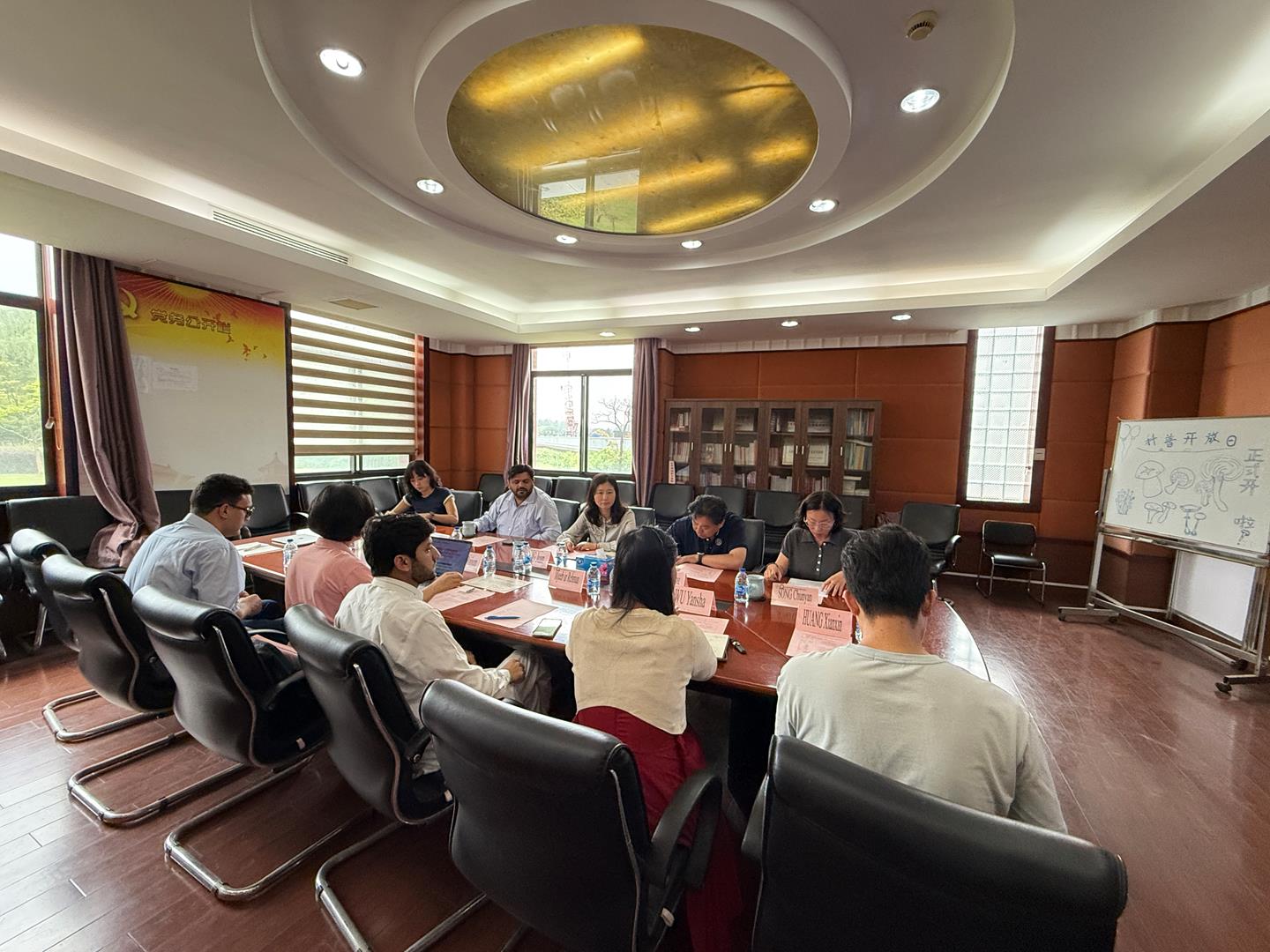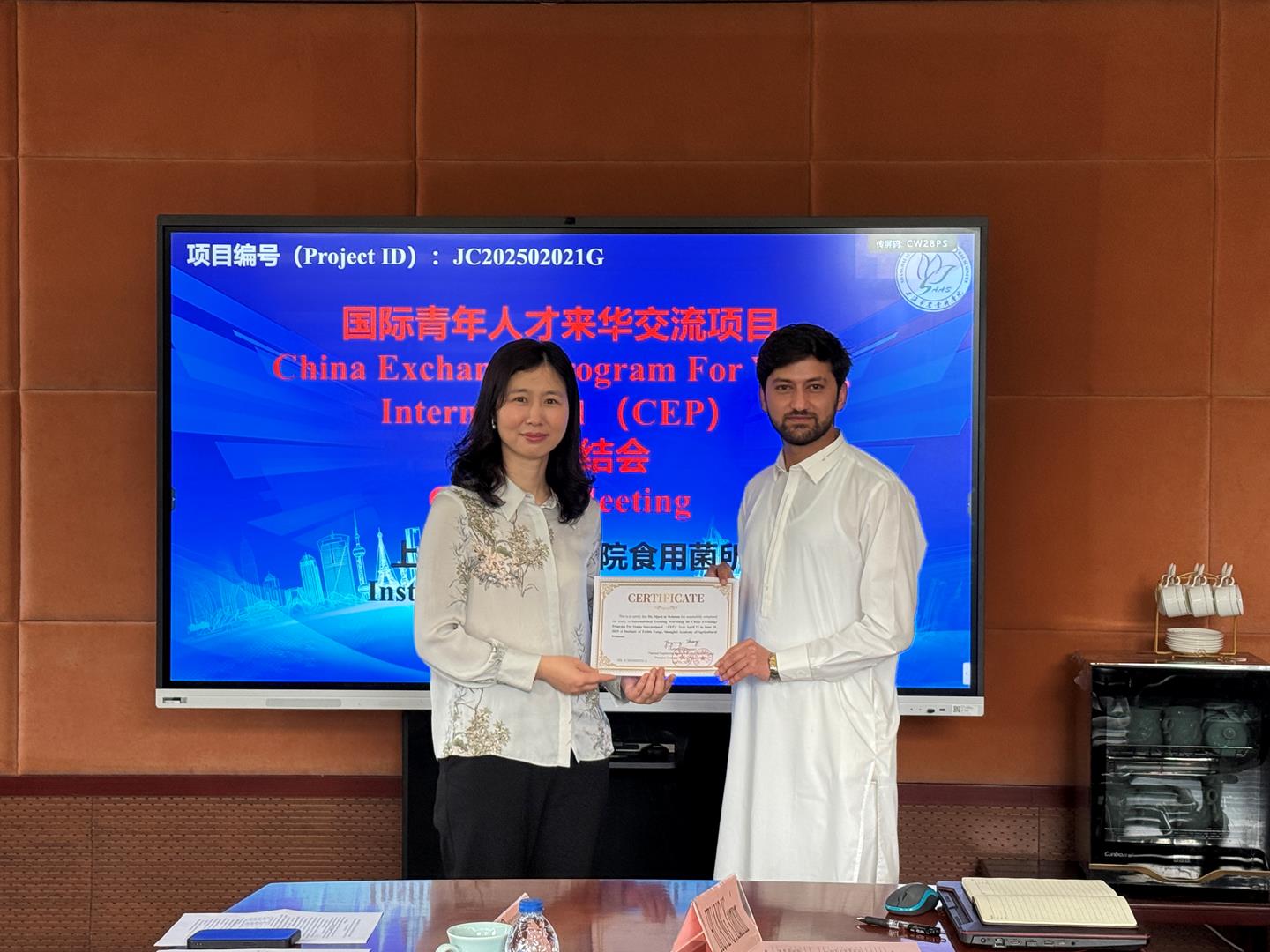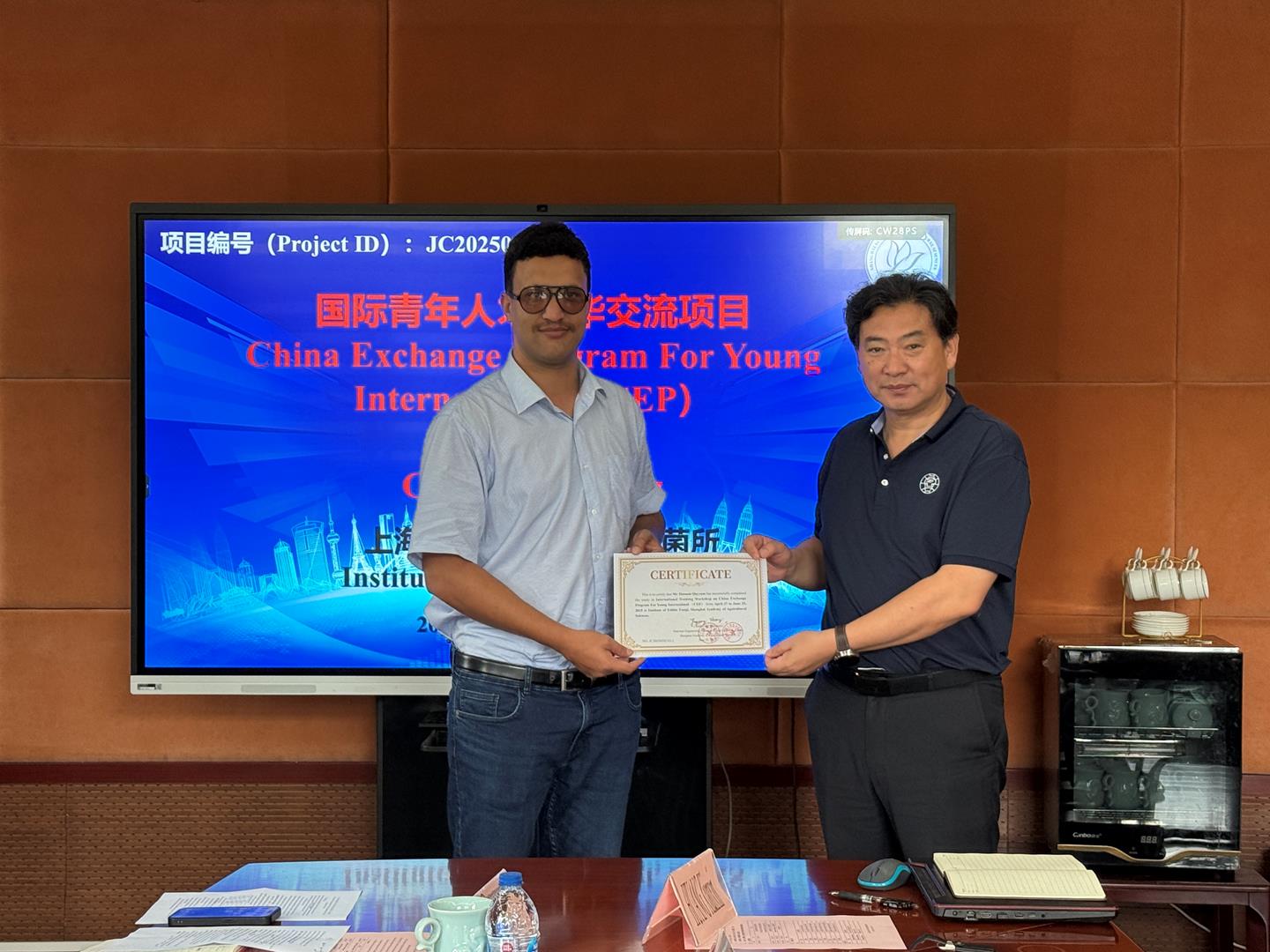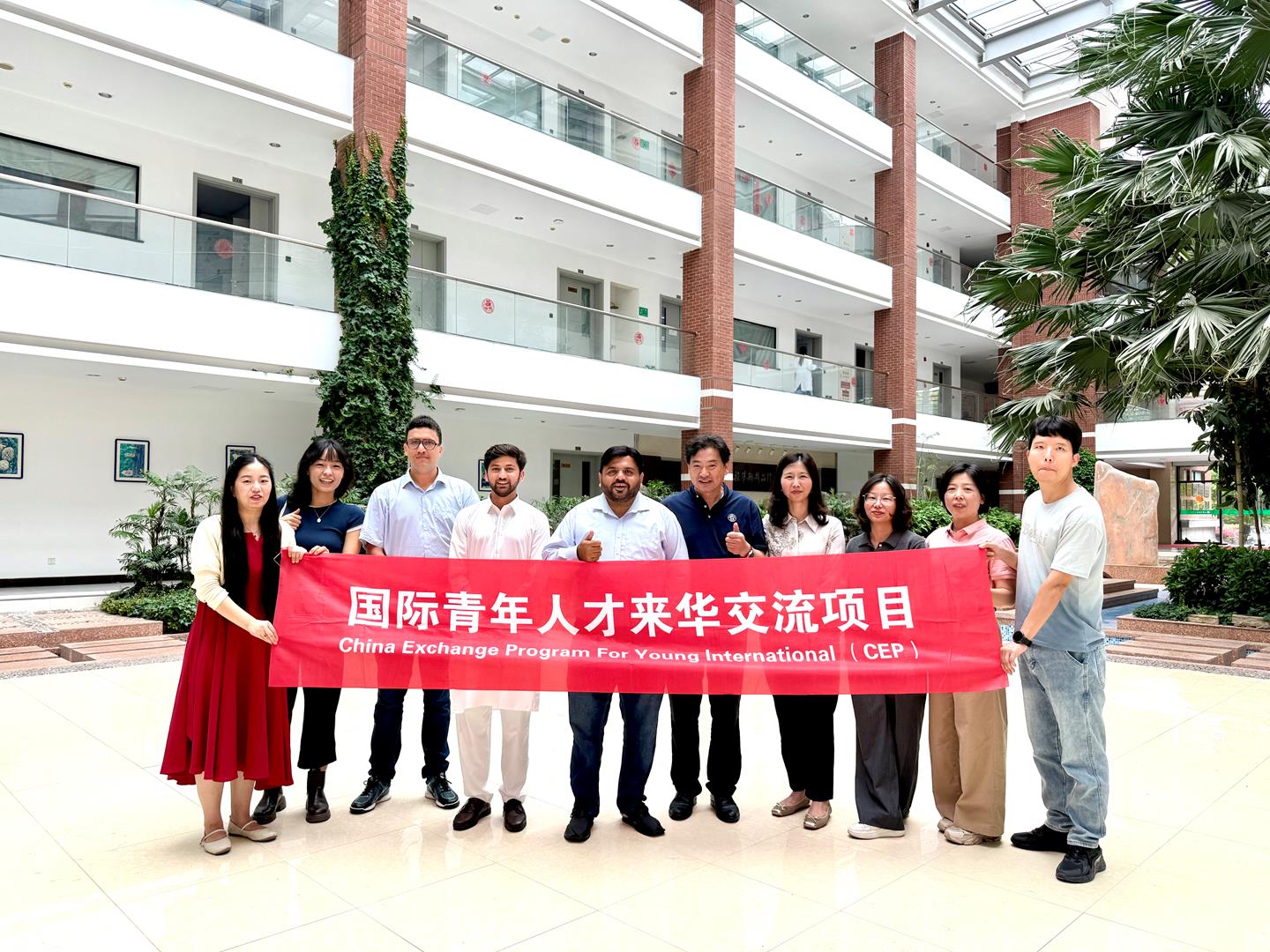Institute of Edible Fungi Successfully Hosts the 2024 China International Talent Exchange Program (CEP) Summary Meeting
On June 24, the summary meeting of the 2024 China International Talent Exchange Program (CEP), organized by Institute of Edible Fungi of SAAS, was successfully held. The CEP program, initiated by the Ministry of Human Resources and Social Security of China and funded by the China International Talent Exchange Foundation, aims to build an international platform for youth talent exchange, fostering mutual understanding, friendship, and shared growth between Chinese and international young folks.

Zhang Jinsong, Director and Song Chunyan, Deputy Directorof the Edible Fungi Research Institute; Yang Juan, Deputy Director of the Research Management Division; Zhang Ci, International Cooperation Specialist; Wang Ruijuan, Associate Researcher and project leader from Institute of Edible Fungi; Lu Huan, Associate Researcher; Wu Yansha, Ph.D.; Basharat Mahmoid, Professor and Student Affairs Director at the University of Poonch Rawalakot in Pakistan ; and international interns Hassam Qayyum and Mjeeb ur Rehman attended the meeting. The meeting was chaired by Song Chunyan.
Wang Ruijuan systematically reviewed the overall progress of the program, highlighting key efforts in scientific collaboration, cultural exchange, and life support for interns. The two Pakistani interns also presented reports on their research work, cultural experiences, and personal insights during their two-month stay in Shanghai.
Professor Basharat Mahmoid, in his speech, expressed deep gratitude to the China International Talent Exchange Foundation and the Shanghai Academy of Agricultural Sciences for their strong support of the two graduate students. He highly praised the program’s significance in cultivating internationally competent, interdisciplinary talents in the field of edible fungi and envisioned leveraging this initiative to deepen long-term cooperation in areas such as mushroom germplasm conservation and cultivation techniques.
Zhang Jinsong commended the two Pakistani interns for their research achievements during their time in Shanghai. He noted that the successful completion of the CEP program laid a solid foundation for future collaboration, expressing hope for joint applications to international projects and increased bilateral exchanges.
Yang Juan stated that the CEP program served as a vital bridge for Sino-Pakistani academic and cultural exchange, providing robust support for in-depth interactions. As the first group of Pakistani interns at SAAS, the two students not only gained academic knowledge and genuine friendships but also enriched our institute’s international profile. She expressed hopes for continued international cooperation, deeper academic collaboration in edible fungi, and enhanced personnel exchanges.
At the meeting, Yang Juan and Zhang Jinsong jointly awarded the two Pakistani interns with completion certificates for their internships.


The successful conclusion of this CEP program marks significant achievements in Sino-Pakistani youth exchange in the field of edible fungi technology. It has not only broadened the international horizons and professional capabilities of young researchers but also deepened mutual understanding and friendship among young scholars from both countries. Looking ahead, the Edible Fungi Research Institute will continue to leverage such exchange programs to strengthen partnerships with international collaborators, jointly advance global edible fungi industry innovation and talent development, and contribute more to international agricultural science cooperation.

